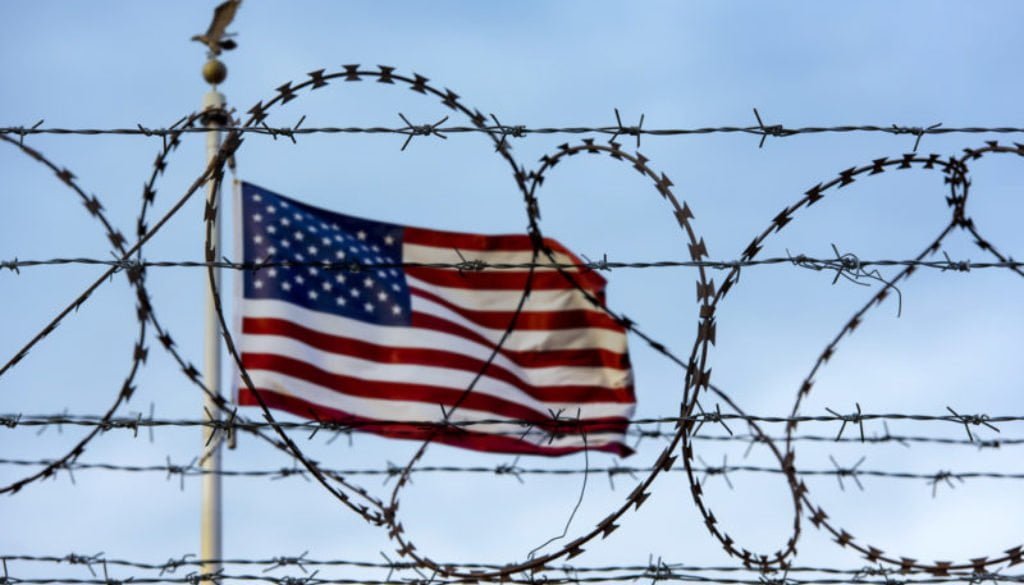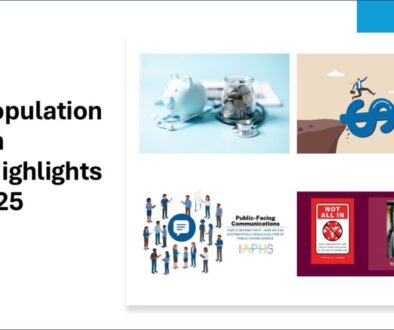When Anti-Immigrant Policies and Rhetoric Become Deadly
Tiffany JosephIn April, I co-authored (with Helen Marrow) the post “Why Anti-Immigrant Policies Matter for Population Health” briefly outlining the negative public health impacts of the Trump administration’s immigration policies. Last month’s El Paso mass shooting, public charge rule publication, and medical deferred action program termination further demonstrate the potentially fatal implications of combined anti-immigrant rhetoric and policy for population health.
Increased xenophobia, racism, and anti-immigrant sentiment were driving forces in the El Paso shooting on August 3rd. The shooter, who was arrested, posted a manifesto online before going to Walmart where he specifically targeted Mexican shoppers in “response to the Hispanic invasion of Texas.” Much of the manifesto’s rhetoric resembled language from President Trump, who called for national unity after the shooting.
But, a few days later on August 7th, the President defended an ICE raid at several Mississippi food processing plants that resulted in the arrests of 680 individuals believed to be working without authorization, calling it a “good deterrent.” The children of those detained were left with no one to care for them, and experienced significant trauma when returning home from their first day of school to empty apartments and homes.
On August 12th, the Department of Homeland Security (DHS) announced implementation of the Trump administration’s proposed public charge rule change, which makes it more difficult for lower-income immigrants from abroad to apply for legal permanent residency (green cards). Although the implementation date is October 15 and the ruling does not apply to those who already have green cards or are naturalized citizens, confusion regarding the rule and which public benefits it applies to have generated disenrollment from various public benefits among documented immigrants.
Two weeks later, on August 26th, chronically ill immigrants – many of them children – and their relatives received letters from DHS stating that the medical deferred action program was being terminated. Despite receiving vital health care in the U.S. that is unavailable in their home countries, they could be deported in 30 days without adjustment in their status.
Cumulatively, each of these events and policy decisions demonstrate severe health consequences, not only for the immigrants who are targets of such policies, but also individuals racialized as immigrants and for citizens of various ethnoracial backgrounds. In the wake of the El Paso shooting, Latinxs, regardless of documentation status, feel more vulnerable and as though they do not belong because of their ethnicity. And individuals across the nation are reminded yet again that no place is safe – church, school, movie theater, and now Walmart – from the mass shootings that have become common occurrences.
Since 2012, I have been examining how the socio-political climate has been affecting immigrants’ healthcare access in Boston, a blue state with a Republican governor. Boston could be considered a best-case scenario given that health coverage is available for all income-eligible state residents. But, immigrants still remain underinsured and receive categorically unequal coverage.
A few days after all these events occurred, I interviewed a group of healthcare professionals who serve diverse communities. One discussed how heartbroken she was, connecting El Paso and the MS ICE raids, to the callousness shown towards immigrants, and especially Latinxs. She and her colleagues have noticed an increase in anxiety, depression, stress, and fear among their Latinx and immigrant patients who feel uncertain about their future in the U.S. This fear has led some immigrants to stop seeing their medical providers and disenroll from their health coverage, especially those in mixed-status families.
And though Boston is miles away from the southern border, some asylum seekers detained there are sent to Boston jails and prisons to await their hearings, generating concerns among local immigrant and health advocates about what health care people receive in detention. As Boston has some of the country’s best hospitals, the medical deferred action program termination further galvanized local organizations and healthcare providers, some of whom filed a lawsuit to counter the administration. A local immigration attorney I spoke with shared his belief that the government – through its policies and enforcement – has created more medical needs for immigrants by inflicting physical and mental health trauma on them, their children, and communities. And my conversations with some Latinx immigrants revealed the racialized anti-immigrant discrimination many people have encountered, from being profiled and pulled over by local police to having hot coffee thrown at them and being told to return to their country.
The brunt of the fear and anxiety is not borne only by immigrants. Service providers, advocates and community members also discussed the stress and despair they feel from the “constant assault” on immigrants.One provider who does evaluations for local asylee applicants mentioned feeling like he’s on the front lines of a battlefield in a war that has gone from bad to horrific under the previous and current administration.
All of these conversations reveal the local impact of the national political landscape even in “blue” places like Boston. They also demonstrate how policy and rhetoric matter for making health a matter of life and death, not only for immigrants, but also for citizens and concerned community members. And if this is what is happening in Boston, imagine what the situation must be like elsewhere.





All comments will be reviewed and posted if substantive and of general interest to IAPHS readers.